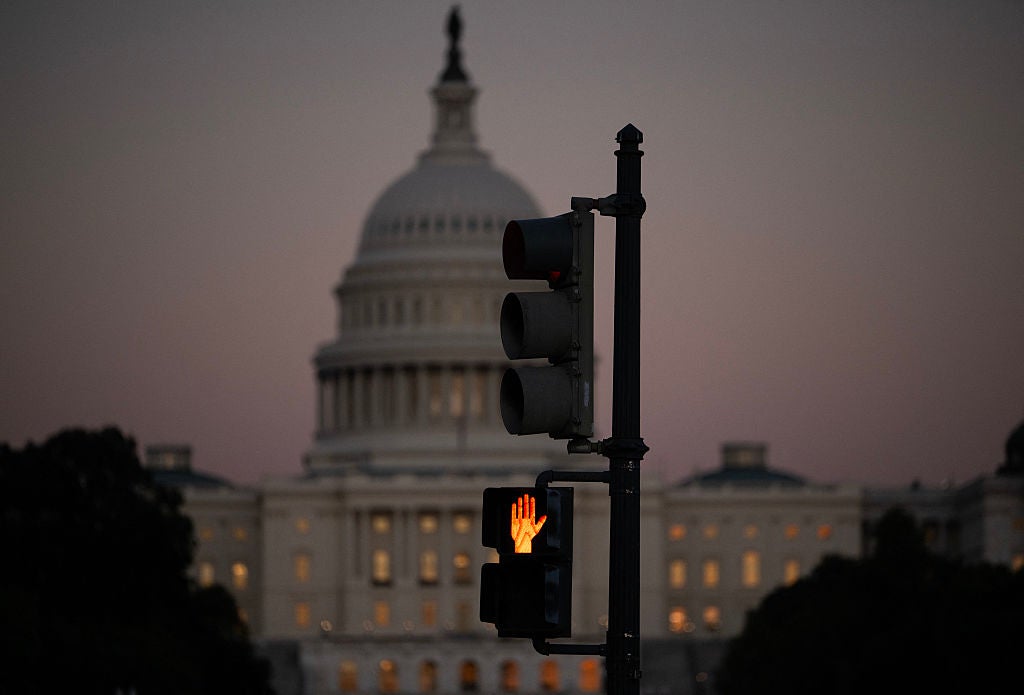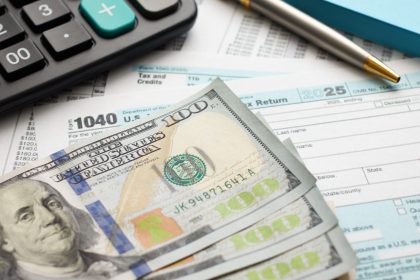ANDREW CABALLERO-REYNOLDS/AFP via Getty Images
Feeling the strain of making ends meet without a regular paycheck? You’re not alone.
On top of the more than 7 million people who are currently unemployed, 750,000 federal employees are now on furlough and without pay due to the current government shutdown. And it could get worse before it gets better, with economists predicting unemployment could reach its highest level since 2021 by next year.
Unemployment and the uncertainty that comes with it can be a scary and isolating experience. But there is help available, potentially even with your current bank or credit union. These organizations may offer financial hardship assistance — but you have to know how to ask for it.
Reach out to your bank or credit union
Searching online can help you determine if your financial institution offers a hardship assistance program. However, if the website doesn’t mention such an initiative, that doesn’t necessarily mean it’s not available.
“Most financial institutions are prepared to offer hardship assistance to customers or members on a case-by-case basis, even if such programs are not promoted publicly,” says Neal Weber, chief financial officer at Blue Federal Credit Union, which is headquartered in Cheyenne, Wyoming.
Weber recommends contacting your bank or credit union to see what type of support they can offer. Any first-line customer service representative should be able to initiate assistance, he says. He recommends asking questions such as:
- What hardship assistance options can you provide for a temporary disruption in wages?
- Do you offer loan modifications, forbearances, or adjusted repayment plans for temporary hardship? If so, what is the eligibility criteria, and which option would be best for my situation?
- Do you offer the ability to skip loan payments for those with financial hardships?
Reaching out to your financial institution soon after being laid off or furloughed can be a better choice than waiting until after a payment is overdue, says Nicole Andrushko, vice president of marketing at Denver, Colorado-based Westerra Credit Union.
“Start those conversations early, and don’t be ashamed or have fear. Let credit unions work alongside you to curate what some of your best options are. It’s really just about asking, ‘What’s out there for me temporarily?’”
— Nicole Andrushko, Vice President of Marketing, Westerra Credit Union
Which financial institutions offer official support?
Some banks and credit unions provide official support for those experiencing financial hardship, and the likelihood of such programs being offered often depends on their field of membership. For instance, they may be more likely to offer assistance during a government shutdown if their customer or member base commonly includes government employees.
Various federal credit unions offer zero-interest, government shutdown relief loans to help workers cover expenses until paychecks resume, says Emily Childers, chief marketing officer at fintech lender Earnest.
“Because these programs rely on ongoing federal employment status rather than current income, they can provide quick, affordable access to funds when they’re needed most.”
— Emily Childers, Chief Marketing Officer, Earnest
In addition to no-interest loans, some financial institutions offer to waive monthly fees on savings accounts or the ability to skip payments on loans or credit card bills. They may also waive early withdrawal penalties for those seeking access to funds in a certificate of deposit (CD).
Banks and credit unions that state they provide support during a government shutdown include:
- Blue Federal Credit Union: Members can receive assistance during a government shutdown, including fee waivers for early withdrawal from term share certificates, no-interest loans and the option to skip a loan payment.
- Navy Federal Credit Union: Navy Federal’s Paycheck Assistance Program provides zero-interest loans to eligible members whose pay is impacted by a government shutdown.
- Regions Bank: Regions offers government shutdown assistance that includes deposit account fee refunds, penalty-free early withdrawals from CDs, deferred payments on credit cards and special rates on personal loans.
- TD Bank: The TD Cares program is offered to eligible customers who are impacted by a U.S. government shutdown, including furloughed federal employees and contractors. They can request loan assistance as well as refunds of overdraft, ATM and maintenance fees.
- USAA Federal Savings Bank: Customers impacted by a government shutdown may be eligible to apply for a no-interest loan, as well as special payment arrangements for loans or insurance products.
- Westerra Credit Union: Available to eligible members, the Westerra Cares: Government Relief Loan is a six-month, 0-percent interest loan designed to bridge the gap between paychecks during a government shutdown. The credit union states it can also help connect individuals with community resources such as a food bank and a pet pantry.
Even if your financial institution isn’t on this list and doesn’t offer official support, it can still be worth emailing, calling or visiting a branch to see if they can provide you with any assistance.
Bottom line
Whether or not your bank offers official support to customers who become unemployed, you may be able to reach out and receive assistance in the form of waived fees, no-interest loans or the ability to skip a credit card payment. “The earlier you reach out, the more options there are,” says Anneliese Elrod, chief operating officer at Westerra. “And if your financial institution isn’t being responsive, call another one.”
Why we ask for feedback
Your feedback helps us improve our content and services. It takes less than a minute to
complete.
Your responses are anonymous and will only be used for improving our website.
Help us improve our content
Read the full article here
















